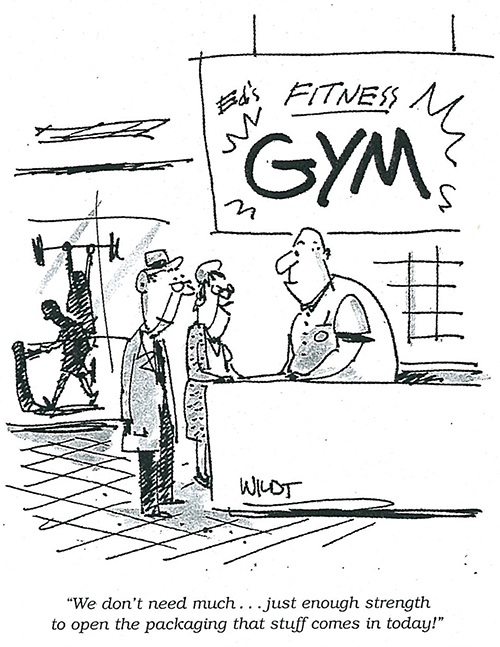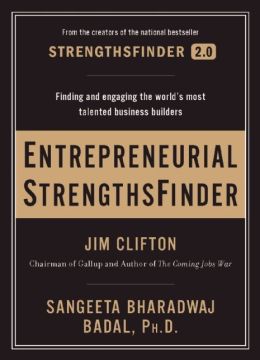A lovely video wonderfully illustrations how competition when paired with a healthy dose of collaberation can bring out some real creativity.
Category Archives: Gallup
Getting strengths training
Now that you have taken the VIA and have a sense of the power using it can havve on students and clients, consider taking some training:
VIA Character Institute offers online webinar-based training. Not to be missed are their free Pioneer speaker series.
Coursera offers a free four week course entitled Teaching Character and Creating Positive Classrooms led by David Levine, founder of KIPP schools and leading proponent of Strengths based education. His course includes interviews with some big names from positive pscyhology.
Gallup offers a variety of training options for their strengthsquest program.
I teach a course for the Couneling training center (CTC) called Counseling Accross Cultures which embeds positive psychology into practice.

New strengths tool: Gallup’s Entrepreneurial Strengthsfinder
“Entrepreneurship is the art of turning an idea into a customr.”
–Gallup
Gallup, who originated the first strengths assessment with the Strengthsfinder, now has a new tool, The Entrepreneurial Strengthsfinder:
Gallup’s researchers and economists embarked on a decade-long study to identify the talents that successful entrepreneurs possess. Applying the same rigor Gallup used to develop the Clifton StrengthsFinder, we created, tested, and refined the Entrepreneurial StrengthsFinder assessment….The assessment reveals a person’s unique ranking and intensity of the 10 talents of entrepreneurship.

- business focus, confidence, creative thinker, delegator, determination, independent, knowledge-seeker, promoter, relationship-builder and risk-taker.
Your personalized report also reveals whether each of the 10 talents are a dominant, contributing, or supporting talent for you. This remindes me of REALISE2. Unfortunately, no sample reports are available yet. At a cost of $40, it is a substantial investment for a student, but for a budding entrepreneur this could prove an invaluable tool that will give helpful insight and direction to applying your talents.
Gallup has anounced a book some time this year. Amazon is listing it for 39.99–save a whole penny off the assessment.
This I bet will be a welcome addition to the strengtsh development world. Bosses can savor “Strengths-Based Leadership.” For educators: “Teach With Your Strengths.” The sales force gets “Strengths Based Selling.” There’s even a book for frisky middle-schoolers: “StrengthsExplorer for Ages 10 to 14.”
Gallup has posted a video in the Called To Coach segment which explores and explains this new tool.
What is the strengths explorer? Initial Review.
Most people familiar with the Strengths Movement are aware of the big two: Gallup Strengthsfinder and the VIA Character Strengths assessment. There are others, but today we will focus on one designed specifically for younger students, The Gallup StrengthsExplorer, which they claim “gives teachers a tool to help identify the talents of their students, as well as actionable suggestions for utilizing those talents. Such information can help teachers to individualize the ways in which they respond to youths, and the manner in which they can teach most effectively. In addition, it provides teachers and parents a common language, goals, and sets of action, all based on the unique talents of youth.” The stated aimes of the Strengthsexplorer instrument is:
-
Help youths identify their positive characteristics
-
Help youths improve their understanding of self
-
Help youths develop from their areas of greatest talent
-
Improve parents’/instructors’ understanding of their children/students
-
Provide an opportunity for an important kind of communication between parents and their children (i.e., discussion of one’s unique nature, the positive characteristics/gifts that one has, and how those can be developed)
-
Provide the theme-based language that youths and parents/ instruc- tors could use to discover and describe positive characteristics
 This 78 item assessment focuses only on 10 strengths, reporting out a person’s top 3. Aimed at students in grade 6 to 10, is a welcome addition to the Naviance platform. Gallup has partnered with Naviance to provide this assessment to students at its 6000 school around the world. Certainly this has far reaching implications. See it in action here:
This 78 item assessment focuses only on 10 strengths, reporting out a person’s top 3. Aimed at students in grade 6 to 10, is a welcome addition to the Naviance platform. Gallup has partnered with Naviance to provide this assessment to students at its 6000 school around the world. Certainly this has far reaching implications. See it in action here:
Gallup StrengthsExplorer in Action from Naviance on Vimeo.
What intrigues me most is how they linked it careers. I expect many counselors will like that.
StrengthsExplorer Themes:
- Achieving
- Caring
- Competing
- Confidence
- Dependability
- Discoverer
- Future Thinker
- Organizer
- Presence
- Relating
So how does it work?
Spend about 12 minutes answering the 78 questions. The interface is clean, large letters. Each question comes up once, with no timelimit, but you cannot go backwards. Once completed, you will learn your top 3 (of the ten).

The breif descriptions are straightforward and empowering. The detailed report begins with an eye-catching graphic.

Take a look at the detailed for Discoverer (“A thinker and learner, you are excited about exploring ideas and making connections. You like to ask the questions “How?” and “Why?”)
Discoverer
A thinker and learner, you are excited about exploring ideas and making connections. You like to ask the questions “How?” and “Why?” Questions are in your mind a lot. How does that work? Why did that happen? How did someone figure that out? You are excited to explore new ideas and ask questions so you understand the “how” and “why” of the things you choose to learn. You collect and connect information and ideas. It is fun to be an expert, and when you find a subject or idea you like, you can spend a lot of time exploring it. You might be bored doing things the same way everyone else does because you like to find new ways. Talking with creative thinkers is fun because it sparks even more ideas. People can benefit from your information and ideas when you share them.
Obviously this sounds a lot like VIA’s Curiosity and a bit like love of learning and perhaps creativity. But given that it comes from Gallup, perhaps it is best to look at which of the 34 strengths themes it combines. Gallup has their own Learner description that is quite similiar, but it has strong tones of Context and analytical. The descriptors are very useful and insightful for helping students understand themselves and counselors and teachers to gain insight.
The action items are aimed at students. They are somewhat general and basic.
1. Discoverer – Action Items
- What would you like to research? Maybe you would like to choose one or two subjects that interest you a lot, and try to become an expert on them. Could you know more than anyone else in your grade about something? Since you like to explore ideas on your own outside of school, try to earn credit for your research and have it help your grades.
- You are good at figuring out how things work. Try to create a space of your own where you can take things apart and see how they’re made, even if it’s just a special “project box” you keep under your bed.
- Find people who are interested in the same things as you. Start a conversation. You can teach each other what you know and learn to look at ideas in new and different ways. Together, you may discover more and more because your ideas connect and lead to new ones. Who else might like to join in?
- The Internet is one place to explore ideas. Find someone who knows great Internet sites where kids can do research, and make a list. Share the list with teachers and friends, and add their favorites to it. They will appreciate it, and you will have a growing list of places you can learn about new ideas.
- You like to know the reason why. You like to get as much information and knowledge as you can before you kick off an activity. Sometimes, others may have an idea and want to jump in and get started. You can be the “voice of reason” in the group who helps them get the facts and learn more first.
- ——
- Counselors and teachers would appreciate more direct suggestions on how to work with students. Perhaps a secton called “Working with Discoverers”
I had an “aha” moment when I saw his three themes: Competing, Relating, and Discoverer. They explained so much about who my son is. For example, we knew that he loved to win at basketball. But we couldn’t figure out why, if he wanted to win so badly, he kept passing the ball to whoever called out for it, whether they were likely to make the shot or not. Now we realize that in his activities, the relationships are just as important to him as the game itself.
———————-
One of the most intriguing aspects of the Strengths explorer is the link to career pathways:

The links take you to Naviance’s already established career pathways. Unfortunately, Naviance and Gallup have given no indication on how the career pathways came to be associated with the indivudal strength themese. Strengths explorer was not designed as a career discovery tool (read the technical report here). So how did Naviance come up with this list? Does accounting really respresent a Discoverer? Do accountants really emobdy “A thinker and learner, you are excited about exploring ideas and making connections.” Do they “like to ask the questions “How?” and “Why?”” Apparently accountants do have particular types of personalities:
Although there are 16 different MBTI types, 42 percent of all accounting students fit into just two types according to the “Accounting Editors’ Journal.” Twenty-five percent tested as type ESTJ or extroverted, sensing, thinking and judging. They tend to trust what they perceive with their senses rather than intuition or gut feelings. They rely on logical thought more than emotion, and they prefer to make judgments about what they experience rather than simply experiencing life without judging. Seventeen percent tested as ISTJ or introverted, sensing, thinking and judging.
Do the STJ personality types correspond to the Discoverer strength theme? Certainly a discoverer is a thinker and most likely a sesnor. As an ENFP…and a discover…it apparently does not fit for me.
While Naviance should make their details more clear, in adding the StrengthsExplorer Naviace provides a robust counseling tool. Naviance also needs to develop a report so counselors can quickly see who has completed the assessment (much like they do for both the Do What You Are and the Career Interest Profiler). Counselors will want lesson plan outlines and activities. Stay tuned and the StrengthsMining website will aim to help you.
1 day training opportunity
I will be giving a pre-conference 1 day training in Bangkok for teachers, counselors and administrators in March 2014:
There has been a quiet transformation happening in some schools around the world as they focus on the conditions under which students, parents and faculty flourish? How do we improve student engagement? How can we better address our communities well-being? What is positive education and how does it impact student learning? Deep questions, but with some very compelling and surprisingly simple ideas to address them. In this workshop, we will look into the current research from positive psychology and its implications for teachers, counselors and administrators. The day will have lots of interactive activities and demonstration giving participants tools that they can use in their own communities.
Loye typs and character strengths.
 Dr. Helen Fisher has been researching and writing about love for years. Such is her wisdom and understanding, she is the Chief Scientific Advisor for Match.com, one of the internet’s leading online dating service. She gives a fascinating and fun interview with The Greater Good contrasting poetry and song lyrics with the scientific lyrics.
Dr. Helen Fisher has been researching and writing about love for years. Such is her wisdom and understanding, she is the Chief Scientific Advisor for Match.com, one of the internet’s leading online dating service. She gives a fascinating and fun interview with The Greater Good contrasting poetry and song lyrics with the scientific lyrics.
She identified four basic personality types identified in her research:
You can take the test here to see which are your dominant types. I hypothesize the strengths that possibly exist in each personality type:
- Explorers (creative and dominated by dopamine). Known for being Highly curious, creative, energetic, spontaneous. ‘Adventure’ is the word most often used by Explorers as they describe themselves and what they are looking for in a mate. The other nine of their top ten most-used words (in descending order) are: venture, spontaneity/ spontaneous, energy, new, fun, travelling, outgoing, passion and active.
- Strengths: Bravery, Curisity, Zest , Adapatable. hope & optimism and positivty. Creativity.
- Builder (sensible and soaked in serotonin). Known for Calm, social, popular, and good at managing people, networking, and building family and community. ‘Family’ is the most-used word by Builders. Following this: honesty, caring, moral/morals, respect, loyal, trust, values, loving and trustworthy.
- Strengths: Responsibility. Woo. Kindness, Teamwork, Capacity to love and be loved. relating, Connectedness, Honesty. Social-Intelligence.
- Director (reasoning and ruled by testosterone). Known for Analytical and logical, straightforward, decisive, tough minded, and focused. Intelligent and intelligence together top the list of words used by Directors. Also intellectual, debate, geek, nerd/nerdy, ambition/ ambitious, driven, politics, challenge/challenging and real.
- Strengths: Achiever. Analytical. Intectualization. Love of Learning.
- Negotiator (intuitive, idealistic, and all about the estrogen and oxytocin). Known for Imaginative, intuitive, empathetic, and emotionally expressive, and have good verbal and social skills. ‘Passion’ and ‘passionate’, also real, heart, kind/kindness, sensitive, read/reader, sweet, learning.
- Strengths: hope & optimism and positivty, Empathy, relating and communication talents, Harmony, Kindness, Capacity to love and be loved. relating
How to sport someone strong in responibility?
Do you know anybody with Responsibility or Self-Control? Does this look familiar?

Achiever is the number 1!
With nearly 9 million people having taken the Gallup Strenthsfinder, it is kind of fun to see how your top five stack up. Below is the list occurance of the 34 themes as revealed in people’s top 5 reports.
| Strengthfiner Theme | # of respondants | % of all top 5 |
| 1. Achiever | 2727101 | 6.31% |
| 2. Responsibility | 2485170 | 5.75% |
| 3. Learner | 2458134 | 5.68% |
| 4. Relator | 2424607 | 5.61% |
| 5. Strategic | 1974885 | 4.57% |
| 6. Input | 1751998 | 4.05% |
| 7. Harmony | 1663252 | 3.85% |
| 8. Empathy | 1557007 | 3.60% |
| 9. Adaptability | 1488933 | 3.44% |
| 10. Maximizer | 1383488 | 3.20% |
| 11. Restorative | 1369954 | 3.17% |
| 12. Positivity | 1340062 | 3.10% |
| 13. Developer | 1308294 | 3.03% |
| 14. Arranger | 1200009 | 2.77% |
| 15. Ideation | 1183739 | 2.74% |
| 16. Individualization | 1166626 | 2.70% |
| 17. Woo | 1122719 | 2.60% |
| 18. Communication | 1117881 | 2.59% |
| 19. Connectedness | 1049037 | 2.43% |
| 20. Analytical | 1033470 | 2.39% |
| 21. Includer | 1023751 | 2.37% |
| 22. Intellection | 1017291 | 2.35% |
| 23. Focus | 1008332 | 2.33% |
| 24. Belief | 988026 | 2.28% |
| 25. Futuristic | 949322 | 2.20% |
| 26. Consistency | 945318 | 2.19% |
| 27. Competition | 940947 | 2.18% |
| 28. Deliberative | 914366 | 2.11% |
| 29. Activator | 891557 | 2.06% |
| 30. Context | 755097 | 1.75% |
| 31. Discipline | 576140 | 1.33% |
| 32. Significance | 551990 | 1.28% |
| 33. Self-Assurance | 458361 | 1.06% |
| 34. Command | 416971 | 0.96% |
Gorgeous posters suitable for Pinning
If you have a pinterest account and have done teh Gallup Strengthsfinder assessment, check out the gougeous posters by Gallup already pinned.


Habits of Supremely happy people
The Huffington Post offers up a well reserched list, firmly based on science, on what happy people do…consistently. While all the list makes a great deal of sense, I am surprised that actually using their strengths does not make the list. Certainly some strengths are mined in their featured list of Habits:
They devote some of their time to giving –practicing Graitude and Kindness
They spend money on other people –practicing Graitude and Kindness
They look on the bright side-–Use hope & optimism and positivty
They LOL –Draw on Humor
They appreciate simple pleasures –practicing Graitude
They nix the small talk for deeper conversation –Relying on their Empathy, relating and communication talents
They make a point to listen. –Because they are strong at relating and communication
They uphold in-person connections.–Focuses the Capacity to love and be loved. relating
They get spiritual.–would be leveraging their own Spirituality and Belief and Connectedness
They walk the walk.–Certainly sounds like they are calling on Zest and positivty
But they do not actually state: Happy people live and use their strengths regularly! Research shows that
People who use their strengths every day are six times more likely to be engaged on the job. You wonder what engagement at work has to do with Happiness? Gallup has the answer: A clear majority of engaged workers — 86% — said they very often felt happy while at work. Among low-engagement respondents, only 11% of actively disengaged and 48% of not-engaged employees stated that they, too, were very often happy at work.
From the VIA institute on Character education:
|
|
|
|
|
